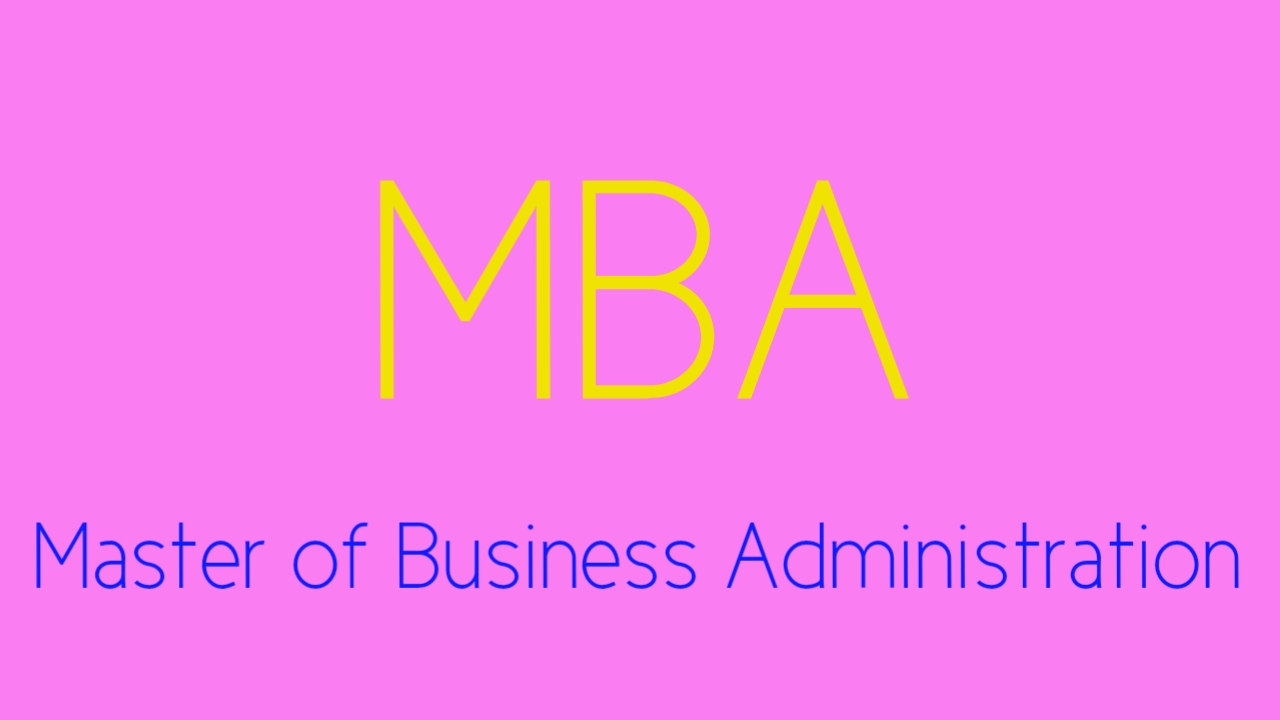MBA course details
An MBA (Master of Business Administration) is a graduate-level degree that focuses on business management and leadership.
 |
| Master of Business Administration, Eligibility,Syllabus,Subject. |
A typical MBA program covers topics such as:
- Accounting and finance
- Marketing and sales
- Operations management
- Strategy and entrepreneurship
- Human resources and organizational behavior
- Data analysis and decision making
- Economics and business ethics
MBA programs can be full-time, part-time, online or hybrid, and can last anywhere from 1 to 2 years. Admissions requirements typically include a bachelor’s degree, GMAT/GRE scores, and relevant work experience.
The objective of an MBA program is to develop the skills and knowledge required to effectively manage and lead organizations in the fast-paced and constantly changing business environment. Graduates of MBA programs often pursue careers in areas such as finance, consulting, marketing, and general management.
MBA Eligibility
To be eligible for an MBA program, you typically need to meet the following requirements:
- Bachelor’s degree: A bachelor’s degree from an accredited institution in any field is usually required to apply for an MBA program.
- Work experience: Many MBA programs require applicants to have a certain amount of work experience, typically 2-5 years, although some schools may have different requirements.
- GMAT/GRE scores: Most MBA programs require applicants to take the GMAT (Graduate Management Admission Test) or GRE (Graduate Record Examination) as part of the application process.
- English proficiency: If English is not your first language, you may be required to take the TOEFL (Test of English as a Foreign Language) or IELTS (International English Language Testing System) to demonstrate your English proficiency.
- Letters of recommendation: Some MBA programs require letters of recommendation from current or former supervisors, colleagues, or professors.
- Personal statement or essay: You may also be asked to submit a personal statement or essay outlining your goals, achievements, and reasons for pursuing an MBA.
MBA Syllabus
The syllabus for an MBA program can vary depending on the school and the specific program you are enrolled in. However, a typical MBA syllabus may include the following core courses:
- Accounting: This course covers financial accounting principles, including balance sheets, income statements, and cash flow statements.
- Economics: This course explores macroeconomic and microeconomic principles and their impact on business decisions.
- Finance: This course covers financial management and decision-making, including investment analysis, capital budgeting, and risk management.
- Marketing: This course covers the fundamentals of marketing strategy, including market research, product development, and pricing strategies.
- Operations Management: This course covers the management of production and operations, including quality control, supply chain management, and project management.
- Organizational Behavior: This course explores the behavior of individuals and groups within organizations, including motivation, leadership, and teamwork.
- Strategy: This course covers the formulation and implementation of business strategy, including competitive analysis and market positioning.
In addition to these core courses, MBA programs may also offer elective courses in specialized areas such as entrepreneurship, international business, or information technology. The syllabus may also include a capstone project or case study where students apply the concepts and skills, they have learned to real-world business problems.
MBA subject
An MBA (Master of Business Administration) program typically covers a wide range of business and management subjects. The following is a list of some common MBA subjects:
- Accounting
- Economics
- Finance
- Marketing
- Operations Management
- Organizational Behavior
- Strategy
- Leadership and Ethics
- Information Technology Management
- Human Resources Management
- Supply Chain Management
- Project Management
- Data Analysis and Decision Making
- Entrepreneurship
- International Business
- Market Research and Consumer Behavior
- Sales and Distribution Management
This list is not exhaustive, and the specific subjects offered in an MBA program can vary depending on the school and program. The subjects are designed to provide students with a comprehensive understanding of business and management concepts and equip them with the skills necessary to succeed in a leadership role.
MBA top college
Top colleges for MBA programs include:
- Harvard Business School
- Stanford Graduate School of Business
- University of Pennsylvania (Wharton)
- Massachusetts Institute of Technology (Sloan)
- Northwestern University (Kellogg)
- Columbia Business School
- University of Chicago Booth School of Business
- University of California-Berkeley (Haas)
- New York University (Stern)
- Duke University (Fuqua)
This list is based on various ranking organizations, including US News & World Report, Financial Times, and The Economist. It’s important to note that the best MBA program for an individual depends on their specific career goals and needs.
MBA Job
There are many job opportunities for individuals with an MBA degree. Some popular roles include:
- Management consultant
- Investment banker
- Corporate finance manager
- Marketing manager
- Human resource manager
- Operations manager
- Entrepreneur
- Chief financial officer (CFO)
- Data analyst
- Product manager
Having an MBA degree can increase your career options and earning potential, but the exact job and salary will depend on a number of factors, such as the specific industry, level of experience, and location.
MBA Salary
The salary of an individual with an MBA degree can vary widely based on several factors, including:
- Industry: Some industries, such as finance and technology, tend to offer higher salaries than others, such as nonprofit or government organizations.
- Location: Salaries can vary greatly depending on where you live, with large cities and coastal regions typically offering higher salaries than smaller or rural areas.
- Company size: Larger companies often offer higher salaries and more benefits than smaller companies.
- Job function: Different job functions within a company, such as finance, marketing, and operations, can result in different salaries.
- Level of experience: As with most careers, individuals with more experience tend to earn higher salaries.
On average, MBA graduates can expect to earn a starting salary of $80,000 to $100,000, with the potential for significant growth over time. The exact salary will depend on the specific factors mentioned above, as well as the individual’s negotiation skills and performance on the job.






